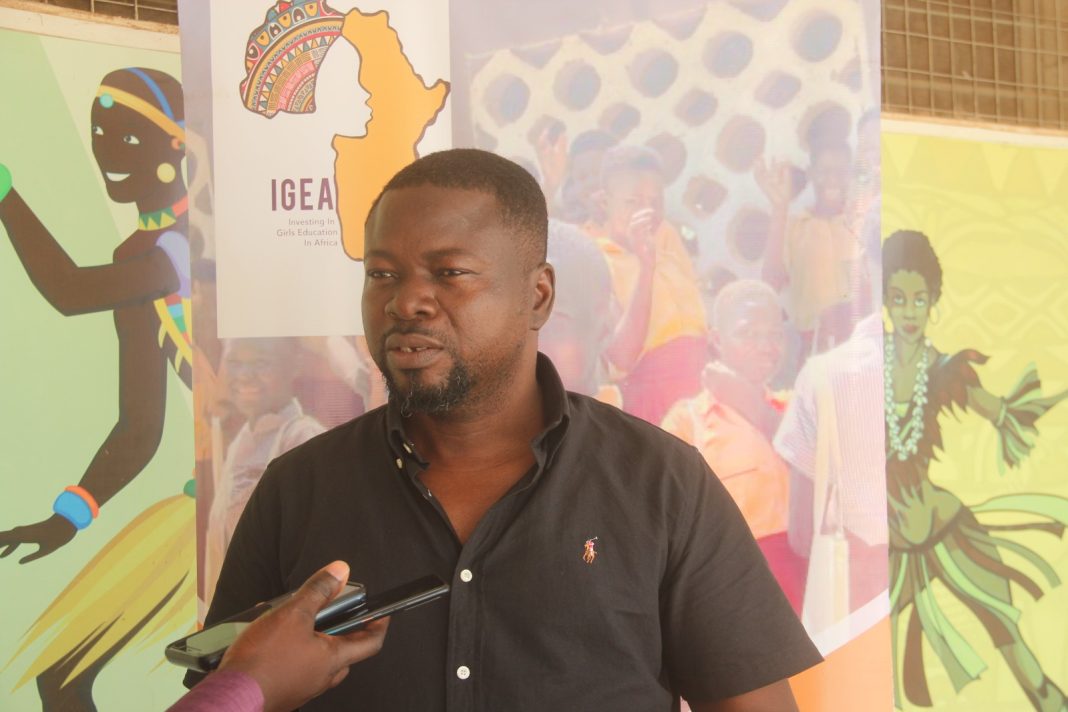It has come to light that about 31 percent of public Junior High Schools in the Kassena-Nankana West District (KNWD) have no access to potable water.
This translates into about a total of 1,288 pupils; made up of 672 (52%) boys and 616 (48%) girls who have no access to potable water in the area. This is according to an assessment of the WASH situation in the KNWD by Investing in Girls Education Africa (IGEA) and its partners.
The situation, according to Investing in Girls Education Africa (IGEA), is likely to affect teaching and learning in affected schools.
According to IGEA, the eastern zone of the district is more affected by the situation as about 50% of schools fall within the zone.
Again, 25 percent of schools have no access to toilet facilities while 49 percent of available toilets are not gender-friendly. 24 percent of schools have no urinals while 26 percent of urinals are not gender-friendly.
This came to light when IGEA held the 2023 Partners and Review Meeting held at Paga, capital of KNWD.
Rusmond Anyinah, Director of IGEA, speaking with the media on the sidelines of the event said, “we are gathered here today as part of our planning and review process. We have come to present to our stakeholders what we were able to do last fiscal year, and what the plans are this year. We also used the opportunity to present what the WASH situation is in KNWD with our partners. We carried out research in 55 public JHSs in the KNWD. We have been analysing the data to see what issues are there.”
The absence of potable water, according to Mr. Anyinah, affects greatly the education of children in the area.
“Children have to go out of the premises of the school to go and compete with community members with water and this impacts negatively on teaching and learning activities. If you go and queue across a particular borehole, or water source to be able to get water, what time would they be able to go back to the classroom and go back to learn? This would have an impact on learning outcomes.”
“We also realised that even in areas where there are toilet facilities, there is a low use of these facilities. A good number of these toilet facilities are just lying idle. Children prefer to go and free themselves in the bush rather than using the facilities,” he said.
At the meeting, it came to light that students, in some areas, are unable to use the toilet facilities because of the behaviour of community members. The community members are said to break into these facilities and mess the place up.
According to the Director of IGEA, it is essential that the findings lead through conversation towards helping the stakeholders deal with the situation.
Investing in Girls Education Africa (IGEA) was founded in 2019 in the UK and Ghana to promote access to quality education for girls in rural communities. The activities of IGEA are anchored on effective partnerships and cross-sector collaborations.
Between April 2022 and March 2023, IGEA undertook, mass sensitization of parents on the need to invest in girls education, distribution of sanitary products for school girls and juvenile inmates, provision of coaching and educational resources to promising rural girls, identification of women and training in the production of reusable sanitary products and kits, facilitate pathways for rural young girls to gain technical skills to aid employability skills and pilot new modules in improving educational outcomes at the basic level.
Source: A1radioonline.com|101.1MHz|Mark Kwasi Ahumah Smith|Ghana


